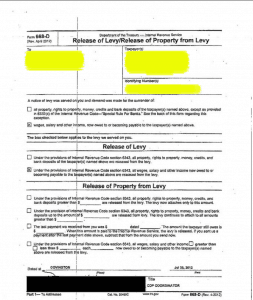A federal tax levy transfers ownership of your property to the IRS. By issuing a levy, the IRS can garnish your wages and wipe out your bank account. A tax levy can take your IRA, 401(k), tax refund, cars, motorcycles and other personal and business property. The IRS can even take your home in certain circumstances.
How to Stop a Tax Levy Before it Starts
You have the right to stop a tax levy before it starts. However, it is vital you take immediate action because if certain deadlines are not met, you waive important legal rights.
However, if the IRS has already levied your wages or bank account or other property, you may still have time to get your tax problem under control. Again, you need to take action so you avoid the IRS winning by default.
How to Stop a Tax Levy After it Starts
Has the IRS already issued a levy? Keep the faith because there are six proven levy strategies that we use to successfully stop an IRS levy, and in some cases we get the money returned to our client.
IRS Mistake. The IRS makes mistakes all the time. The IRS often levies when legally they were not authorized. Some examples are [A] You paid the tax in an Offer in Compromise; [B] You filed bankruptcy and the taxes were included in bankruptcy; [C] The time limit to collect the tax has expired; [D] You are already in an installment agreement and you have paid as agreed; [E] You did not receive a Notice of Levy before you were levied. You must get notice before the IRS can levy property.
Show Benefit to IRS. The idea here is to show the IRS that by releasing the levy, you will be more likely to pay the tax. You need to be clever here because this is a broad standard and if you can show the IRS that the levy will do more harm than good, you will get the levy released. For example, if the levy is going to prevent you from paying business expenses you need paid if you are going to turn a profit, then the IRS will consider a release. Faith Firm carefully catalogues success cases from real clients we have assisted in releasing levies, and we use those cases to help current clients.
Demonstrate Hardship. This is another broad standard. You must show the IRS that the levy is harming your health or welfare and is keeping you from earning a living. To win a release under this standard, you need to provide hard numbers of income and expenses to the IRS.
Fair Warning: The IRS often attempts to lock taxpayers into fixed and unreasonable standards. You can overcome this tactic by providing detailed information and descriptions that are relevant to your unique financial circumstances – employment status, profession, industry in which you work, age, medical expenses, child support, special needs for family, number of dependents, property, other debt, etc. What you’re doing is painting your situation in the worst possible light in order to obtain hardship. However, if you cannot show hardship then use other strategies listed here.
File Bankruptcy. This is probably the most overlooked solution to tax levies and other tax problems. The bankruptcy code offers immediate relief when a taxpayer is being levied. The bankruptcy code also offers long term relief because tax debt may be discharged in bankruptcy. A skilled tax lawyer knows how to “trump” the Internal Revenue Code by using the Bankruptcy Code.
Submit an Offer in Compromise. Simply filing an Offer in Compromise to the IRS will not automatically stop a levy, yet if you can convince the revenue officer that the offer is in good faith and is not meant to hinder or delay, you may be able to stop the levy and then have an opportunity to eliminate your tax liability for a fraction of what you owe.
Appeal. The IRS offers more than one way to get an independent and immediate review of your tax levy. One way is to request a “Due Process” hearing. This is perhaps the most powerful appeal right you have with the IRS. Other appeal rights include appealing to U.S. Tax Court or an independent government authority that exists within the IRS. All of these appeals have proven to be highly effective in obtaining quick relief from an IRS levy. Ask us for more information on this and other solutions. We have extensive experience in using appeal rights to solve our clients’ tax problems.
Business Assets and Bank Accounts
If you owe the IRS and you are a sole proprietor or a partner, your business assets and bank accounts are in danger of levy. Here is what the IRS can do:
- Levy business assets to pay personal taxes.
- Levy business assets to pay business taxes.
- For certain taxes like payroll taxes, levy personal assets to pay business taxes.
Get Levy Relief – Starting Today
Call us and let’s take the first step. IRS solutions are often embarrassingly simple and quick. Don’t kick yourself later because you waited too long.
Call Faith Firm at 414 771 9200 day or night, 7 days a week, and we will offer you the most effective, fastest solutions to stamp out your IRS problems once and for all.
Tax Law: Tax Levy Relief Information
Contact Us Today To Stop A Tax Levy


